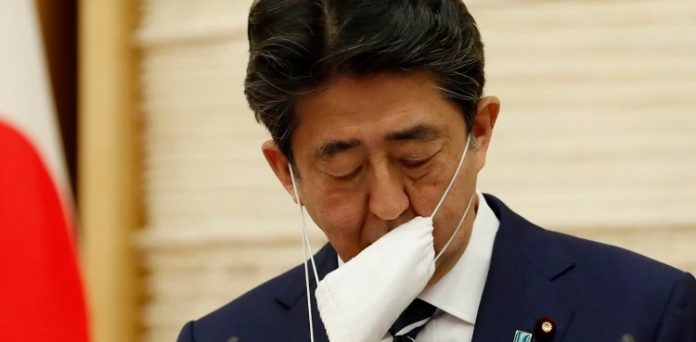Japan’s ruling party will vote on September 14 on Prime Minister Shinzo Abe’s replacement, an official confirmed Wednesday, as powerful chief cabinet secretary Yoshihide Suga consolidated his frontrunner status in the race.
A vote in parliament — expected to endorse the Liberal Democratic Party’s new leader — is likely to follow on September 16.
The new prime minister will face a raft of challenges, from the coronavirus pandemic to a tanking economy, as well as ensuring the postponed Tokyo Olympic Games can go ahead.Key LDP factions have already thrown their support behind Suga, who is expected to formally announce his candidacy later Wednesday.
Two other candidates, former defence minister Shigeru Ishiba and LDP policy chief Fumio Kishida, have so far announced plans to stand.
Abe, Japan’s longest-serving leader, kicked off the race when he said last week he would step down over health problems.
– Scaled-back vote –
The LDP has opted for a scaled-back leadership vote that will not include rank-and-file members.
Instead, only its MPs and three representatives from each of the country’s 47 prefectures will vote.
The decision has elicited some criticism, but party officials said it would take too long to organise a broader vote.
Experts said the format favours Suga, 71, who has built an effectively insurmountable lead in the race already.
His selection “is increasingly assured, as the LDP’s factions -– with the exception of the factions headed by rival candidates Shigeru Ishiba and Fumio Kishida -– have lined up behind Suga”, said Tobias Harris, a Japan expert at Teneo consultancy, in a note.
Suga has held his key post for years — coordinating policy among ministries and agencies, and serving as the effective face of the government as its chief spokesman.
Considered a pragmatic politician, he is a close Abe advisor who encouraged the prime minister to run again after a disastrous first term in office ended after just a year in 2007.
– Rivals –
Kishida, 63, a former foreign minister, was in the past considered Abe’s favoured successor.
But the outgoing prime minister has said he will not endorse a candidate, and Kishida’s limited public profile is likely to leave him struggling to challenge the likes of Suga.
On Wednesday, the policy chief said more was needed from Abe’s signature economic stimulus programme, as it had primarily benefited big companies and the rich.
“Trickle-down effects are expected for the middle class, mid-sized and small-sized companies and for the countryside, but that’s not happening yet,” he argued in an interview with local media.
Ishiba, 63, polls well with the general public but is less popular among party members.
He once left the LDP — spending time as both an independent and briefly joining another party — and many within the ruling bloc have not forgiven the political dalliance.
Ishiba has also stressed the need for everyday people on lower incomes to benefit from government economic policies, and said Japan needs to reduce its reliance on nuclear power.

















